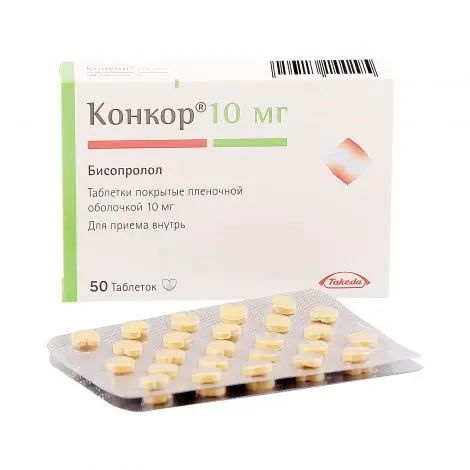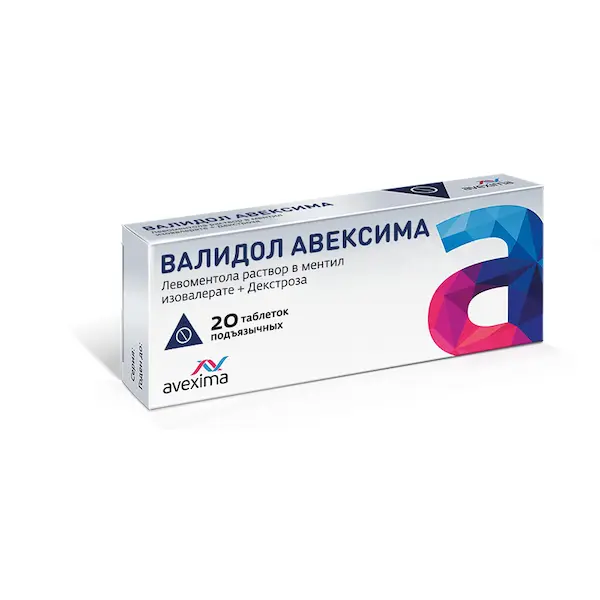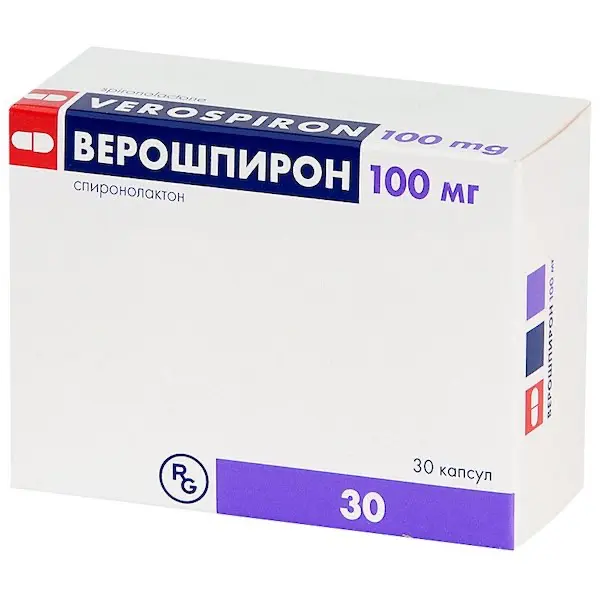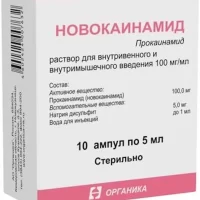Description
Concor Pharmacodynamics
A selective beta1-adrenoblocker without sympathomimetic activity of its own, it has no membrane stabilizing effect. It has only slight affinity for beta2-adrenoreceptors of bronchial and vascular smooth muscle as well as for beta2-adrenoreceptors involved in metabolic regulation. Consequently, bisoprolol in general has no effect on airway resistance and metabolic processes in which beta2-adrenoreceptors are involved.
The selective effect of the drug on beta1-adrenoceptors remains outside the therapeutic range.
Bisoprolol has no pronounced negative inotropic effect. The maximum effect of the drug is reached 3-4 hours after oral administration. Even when bisoprolol is administered once a day, its therapeutic effect is retained for 24 hours due to 10-12 hour blood plasma elimination half-life. As a rule, the maximum reduction of arterial pressure (BP) is achieved 2 weeks after the beginning of treatment.
Bisoprolol reduces the activity of the sympathoadrenal system (SAS) by blocking the beta2-adrenoreceptors of the heart.
When administered once daily orally in patients with coronary heart disease (CHD) without signs of chronic heart failure (CHF), bisoprolol decreases heart rate (HR), reduces heart stroke volume and, consequently, reduces ejection fraction and myocardial oxygen demand.
During long-term therapy, initially increased total peripheral vascular resistance (TPR) decreases. Reduction of plasma renin activity is considered to be one component of the hypotensive effect of beta-adrenoblockers.
Indications
– Arterial hypertension;
– Coronary heart disease: stable angina pectoris;
– Chronic heart failure.
Contraindications
-Hypersensitivity to bisoprolol or to any of the excipients (see section “Composition”),
-acute heart failure, chronic heart failure in the decompensation stage, requiring inotropic therapy,
-cardiogenic shock,
-Atrioventricular (AV) block of II and III degree, without pacemaker,
-sinus node weakness syndrome,
-sinoatrial block,
-Severe bradycardia (heart rate less than 60 bpm),
-Severe arterial hypotension (systolic BP less than 100 mm Hg),
-Severe forms of bronchial asthma,
-Severe peripheral arterial circulatory disorders or Raynaud’s syndrome,
-pheochromocytoma (without concomitant use of ?-adrenoblockers),
-metabolic acidosis,
-age less than 18 years (insufficient data on efficacy and safety in this age group).
Dosage and administration
- Concor® tablets should be taken once a day with small amount of liquid, in the morning before, during or after breakfast. The tablets should not be chewed or crushed into a powder.
- Arterial hypertension and stable angina pectoris
In all cases, the regimen of intake and the dose is selected by the doctor for each patient individually, in particular, taking into account the HR and the patient’s condition.
Usually, the initial dose is 5 mg of Concor® once a day. If necessary, the dose may be increased to 10 mg once a day. - During treatment of arterial hypertension and stable angina pectoris, the maximum recommended dose is 20 mg of Concor® once daily.
- Chronic heart failure
Standard regimen of CHF treatment includes angiotensin converting enzyme inhibitors (ACE) or angiotensin II receptor antagonists (in case of intolerance to ACE inhibitors), beta-adrenoblockers, diuretics and optionally, cardiac glycosides. Starting treatment with Concor® requires special titration phase and regular medical control.
Stable chronic heart failure without signs of exacerbation is a prerequisite for Concor® treatment. - Chronic heart failure treatment with Concor® starts according to the following titration scheme. Individual adaptation may be required depending on how well the patient tolerates the prescribed dose, i.e. the dose may be increased only if the previous dose was well tolerated.
- To ensure an appropriate titration process in the initial stages of treatment, bisoprolol in dosage form is recommended: 2.5 mg tablets. The recommended initial dose is 1.25 mg once daily. Depending on individual tolerance, the dose should be gradually increased to 2.5 mg, 3.75 mg, 5 mg, 7.5 mg, and 10 mg once daily. Each subsequent dose increase should be made after at least two weeks.
- If the increased dose is not well tolerated by the patient, the dose may be reduced.
Maximum recommended dose for CHF treatment is 10 mg of Concor® once daily. - During titration, regular monitoring of BP, HR and severity of CHF symptoms is recommended. Worsening of CHF symptoms is possible from the first day of using the drug.
- If a patient poorly tolerates the maximum recommended dose of the drug, a gradual dose reduction should be considered.
During or after the titration phase, a temporary worsening of CHF, arterial hypotension or bradycardia may occur. In this case, it is recommended first of all to adjust doses of drugs of concomitant therapy. It may also be necessary to temporarily decrease the dose of Concor® or cancel it. - After the patient’s condition is stabilized, the dose should be titrated again, or the treatment should be continued.
Duration of treatment for all indications of Concor®
Treatment with Concor® is usually a long-term therapy. - Special patient groups
Renal or hepatic impairment:
– Mild to moderate hepatic or renal impairment usually does not require dose adjustment.
– In severe renal dysfunction (CKD less than 20 ml/min) and in patients with severe liver disease, the maximum daily dose is 10 mg. Increasing the dose in such patients should be done with extreme caution. - Elderly patients:
No dose adjustment is required. - Children:
Since there is no sufficient data on the use of Concor® in children, it is not recommended to prescribe the drug in children under 18 years old. - To date, there are insufficient data on the use of Concor® in patients with CHF in combination with type 1 diabetes mellitus, significant renal and/or hepatic dysfunction, restrictive cardiomyopathy, congenital heart disease or heart valve defect with significant hemodynamic abnormalities. There are also still insufficient data on patients with CHF with myocardial infarction within the last 3 months.





